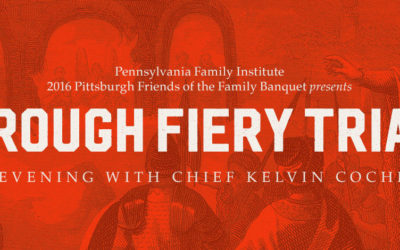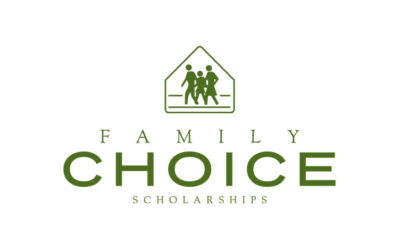Issue
Standards for Explicit Sexual Content in Schools
KEY POINTS
- School Boards are legally permitted to create policy setting standards for preventing age-inappropriate sexually explicit content in their curriculum and library.
- The standard ought not be: “As long as this book doesn’t land us in jail for giving it to a minor, the sexually explicit content is welcome in our curriculum or the school library.”
- Written policy protects students, parents, employees, and the school
and ensures better educational content will fill the finite space in curriculum and in libraries. - Schools should prioritize material that provides rich educational value over material that may provide similar value but also has age-inappropriate sexually explicit content.
- Age-Appropriate policies are not directed at viewpoint and are not banning the book from student possession. They are exercising the schools prerogative to determine what to include in its own library and curriculum.
Standards for Sexually Explicit Content in Schools
Schools must engage in line-drawing for age appropriateness of sexually explicit content in their library and curriculum. Criminal laws are one required line prohibiting schools from giving materials to minors in curriculum or library that a court deems pornographic or obscene. But what about sexually explicit content that does not rise to the extremely high bar of criminal law?
School boards are legally permitted to articulate standards that go beyond “would we land in jail for giving this book to a minor?” to prevent other age-inappropriate sexually explicit content in their curriculum and school library. Unfortunately, many schools have no policy standards for sexually explicit material beyond criminal law.
Schools with written age-appropriate standards for sexually explicit materials that differ for elementary, middle, and high schools protect students and ensures better educational content will fill the finite space in curriculum and in libraries.
But such written policies also protect the school’s staff and district from costly litigation. Even without written policy, a school librarian, principal, or school board is permitted to remove a particular title they deem age-inappropriate sexually explicit material. But with written policy standards, the school is less susceptible to baseless allegations that the title was removed for an impermissible viewpoint discriminatory reason.
School employees still have wide discretion to select and purchase books that comport with the age-appropriate standards in written policy set by the school board, and from that universe of materials, parents then have ultimate authority to make additional age-appropriate determinations for their own child and should have authority to restrict certain titles for their own child.
Individuals who desire to see sexually explicit materials in the hands of minors sometimes argue that such policies are “book bans.” Attempts at labeling common-sense school standards as “book bans” have been rejected by courts. See, C.K.-W. v. Wentzville R-IV Sch. Dist., 619 F.Supp. 3d 906, 909-910 (E.D. Mo. 2022) (“A school district does not ‘ban’ a book when, ‘through its authorized school board,’ it ‘decides not to continue possessing [a] book on its own library shelves.’”) Citing ACLU of Fla., Inc. v. Miami-Dade Cnty. Sch. Bd., 557 F.3d 1177, 1218 (11th Cir. 2009).
A parent, for example, who wants to buy sexually explicit books for their own child to read are not prevented from doing so by such school policies. School policies setting forth its own age-appropriate standards for sexually explicit content in its own curriculum and school library do not even prohibit a student from bringing their own book to school or from reading it in an appropriate time, such as study hall. But school districts do not have to put such explicit books in their own curriculum or in the school library, and such a decision by the school is not a ban on books.
Such policies treat inappropriate sexually explicit content the same regardless of whether the sexually explicit depictions or descriptions happen to be between straight, gay, or even a lone person. As such the argument made by those who desire to see sexually explicit materials in the hands of minors, that these policies are directed at LGBT people, is false.
Too many schools lack baseline standards regarding sexually explicit content in school libraries. Schools ought to spend the finite time in the day on academic excellence, and sexually explicit content detracts from that. Explicit sexual depictions and descriptions may sell, but refusal to purchase it is no ban. Districts can decide not to buy and stock sexually explicit content. If you are a school board member who desires to implement such a policy, we are glad to assist you.

Related Articles
Three Examples Why President Obama’s Bathroom Decree Goes Too Far
President Obama is now bullying every Pennsylvanian and American with the problematic policy decree he just released today. This has no force of law or legal authority behind it, but it does put schools at risk of losing federal funding by asking them to throw away...
If Obama Was King, He’d Take Away Student’s Right to Privacy
But President Obama is not King…remind your school districts of that fact. Today the Obama administration has made a “directive” to public schools that they are to open up women's locker rooms and restrooms to the opposite sex. This has no force of law or legal...
Call Governor Wolf – Will our kids get to keep their best teachers?
On Governor Wolf's desk is HB 805, which would end Pennsylvania’s seniority-based layoff practice, ensuring children have access to a high-quality learning experience. "Pennsylvania is one of the last states to base teacher layoff decisions purely on seniority. My...
NC Governor on Bathroom Policy: “If you have the anatomy of a man, you shouldn’t use the women’s restroom.”
Pennsylvania Governor Tom Wolf says North Carolina is "wrong" and, therefore, wants men to be able to access women's restrooms and showers. What's worse, Governor Wolf has made it his #1 non-budget priority to pass proposed Bathroom Bills - HB 1510 & SB 974 - here...
Through Fiery Trials – An Evening with Chief Cochran in Pittsburgh
Join the Pennsylvania Family Institute and Chief Kelvin Cochran at the Pittsburgh Marriott North Saturday, May 21. Dinner tickets are $75 and sponsorship donation levels begin at $250. Click here for ticket information and sponsorship opportunities.
Applications available for Family Choice Scholarship Program
Student aid applications are now being accepted for our Family Choice Scholarship Program - an initiative of the Pennsylvania Family Institute, part of the Education Improvement Tax Credit (EITC) and Opportunity Scholarship Tax Credit (OSTC) - for the 2016-2017...
Counseling student punished for helping man with same-sex attraction—now obtains degree
Victory for our First Amendment freedoms A graduate student in psychology was about four weeks away from completing a year-long internship necessary for obtaining a master’s degree, when a Chestnut Hill College Dean wrote the student an alarming email. The Dean told...
Governor Wolf Gifts Some Hope to Low-Income Families; Orders Release of EITC & OSTC Approval Letters
Helping to make Christmas this year a little brighter for children in low-income families, Governor Wolf has just ordered the Department of Community and Economic Development (DCED) to release the approval letters to all businesses for the Educational Improvement Tax...



